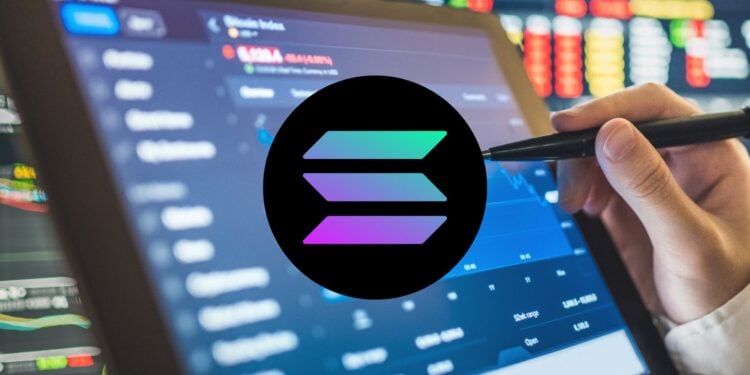- Cboe BZX filed for a Solana ETF with spot access and built-in staking rewards.
- Invesco will sponsor, with Fidelity handling admin, and cold wallets will secure SOL tokens.
- Cboe also filed for an Injective ETF, as staking-enabled funds gain momentum with regulators.
So, here’s the scoop—Cboe BZX Exchange just tossed a fresh filing over to the SEC. It’s for the Invesco Galaxy Solana ETF, and yeah, this one’s kind of a big deal. Why? Because it’s not just offering spot exposure to Solana—it’s also adding a staking feature right into the fund. That’s right. You get SOL exposure and staking rewards. Pretty wild.
This whole thing comes as digital asset ETFs are gaining traction again in the U.S., especially with the regulatory winds blowing in a slightly less hostile direction lately.
Cold Wallets, Hot Idea
The fund’s setup is pretty straightforward, but it’s got some nice touches. It’s gonna hold real SOL tokens—not futures, not derivatives—real SOL. And they’ll be sitting snug in cold, segregated wallets. Safe and sound.
On top of that, a portion of the holdings will be staked with carefully picked providers. Those rewards? They’ll be rolled into the trust as income. Not bad if you’re into passive yield on top of price exposure. It’s all filed under BZX Rule 14.11(e)(4), which is the same playbook Bitcoin and Ethereum spot ETFs used earlier this year.
This could be the first U.S. ETF to give spot access to Solana with staking baked in. That’s a first.
How It All Works
Invesco will be the sponsor. Fidelity’s handling fund admin and distribution. And the valuation? That’ll be tracked using the Lukka Prime Solana Reference Rate. It’s updated every 15 seconds and pulls from major exchanges like Coinbase, Kraken, Binance, and OKX—basically, the big names.
Redemptions and creations? You can do it with cash or in-kind. SOL’s stashed in cold storage with a third-party custodian, so it’s all handled securely.
Cboe’s Betting on Solana’s Strength
Cboe’s pitch includes some strong arguments. Solana has solid global liquidity, its market trades 24/7, and no single player really dominates it. That makes it harder to manipulate, at least in theory. They also pointed out that Solana futures launched on CME back in March 2025, which adds some legitimacy—even if volume isn’t massive yet.
What they’re really leaning into is this: Solana has the infrastructure, the activity, and the price discovery mechanisms that should meet the SEC’s standards. Just like Bitcoin and ETH did.
Injective ETF Also in the Pipeline
Oh, and there’s more. Cboe’s also pushing another ETF—this time for Injective (INJ). Sponsored by Canary Capital, the Canary Staked INJ ETF would follow a similar design: spot exposure plus staking rewards.
Canary floated this concept earlier in July, and it’s looking like the SEC might be more open to these hybrid structures now. It reflects a bigger trend: staking ETFs are inching their way into the spotlight.
This INJ filing will go through the same review process we’ve seen for other crypto funds, but it’s another sign that the space is evolving fast—especially when staking utility starts becoming standard in fund structures.














